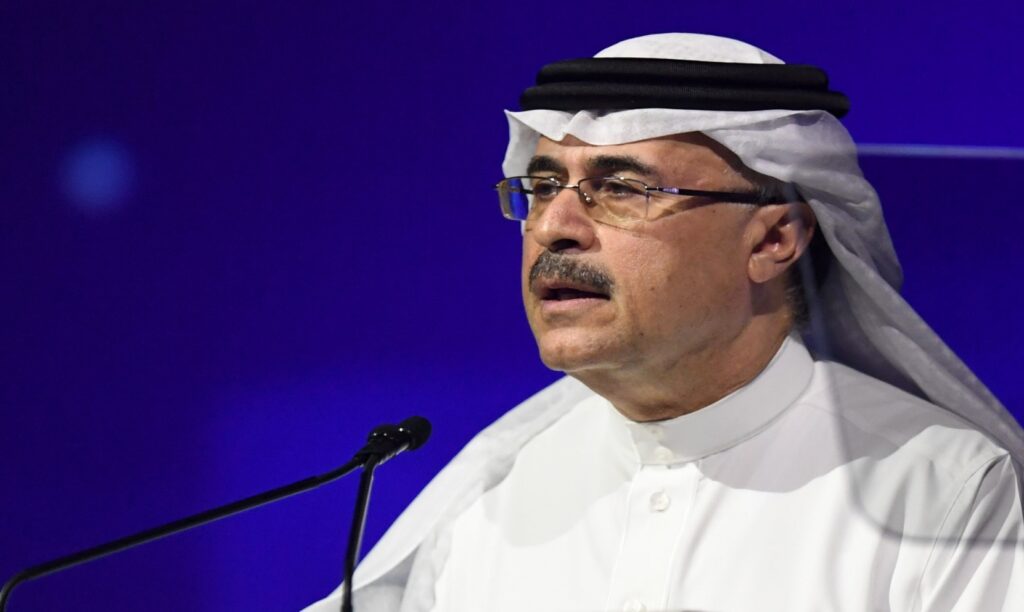
The CEO of Saudi oil giant Aramco, Amin Nasser, stated that global oil markets could handle short-term disruptions in the Red Sea. However, prolonged attacks by the Houthis on ships might lead to a shortage of tankers, resulting in longer voyages and supply delays. Nasser expressed his expectation that the oil market would tighten as consumers depleted stocks by 400 million barrels over the last two years, leaving OPEC’s spare capacity as the primary source for meeting increasing demand.
Nasser, in an interview with Reuters, disclosed that he envisions a more constrained oil market in the short run. However, his concerns extend to the prospect of prolonged disruptions caused by the Houthis, an Iran-aligned group, attacking ships in the Red Sea. Such persistent attacks could trigger a shortage of tankers, leading to extended voyages and consequential delays in oil supply.
The CEO highlighted that the oil market is poised to tighten further as consumers have drawn down stocks by a staggering 400 million barrels over the past two years. This depletion has left the spare capacity of the Organization of the Petroleum Exporting Countries (OPEC) as the primary reservoir to meet the escalating global demand.
The Houthis’ attacks in the Red Sea have compelled many companies to reroute cargoes around Africa. Nasser pointed out that if the disruptions persist in the short term, tankers might remain available, but in the long term, there could be a problem. He highlighted the potential need for more tankers, which would have to undertake extended journeys. Container vessels have been altering their routes, avoiding the Red Sea and the Suez Canal, the fastest route from Asia to Europe, leading to a 10-14 day extension in the journey via the alternative route around South Africa’s Cape of Good Hope.
Aramco has the capability to bypass the Bab al-Mandab strait near Yemen, where the Houthis launch attacks, by utilizing a pipeline connecting its eastern and western coast facilities. This enables quicker access to the Suez Canal. Nasser projected oil demand to reach 104 million barrels a day (bpd) in 2024, indicating a growth of approximately 1.5 million bpd after a 2.6 million bpd increase in 2023.
He emphasized that the combination of demand growth and low stocks would further tighten the market. Global stocks have diminished to the lower end of a five-year average as consumers depleted offshore and inland reserves by 400 million barrels in the past two years. Nasser identified spare capacity, currently at around 3.5% globally, as the only available option. He warned that as demand rises, this spare capacity could erode unless additional supply is introduced.
Nasser refrained from predicting when oil demand would peak or plateau, citing the shift in fossil fuel consumption from developed to developing countries. Despite this uncertainty, he highlighted robust growth and healthy demand in China, where Aramco has invested in refineries with attached crude supply deals and is engaged in discussions for further collaborations, particularly focusing on converting liquids into chemicals.
As the world grapples with geopolitical uncertainties and evolving energy dynamics, Aramco’s CEO emphasized the pivotal role of spare capacity, currently standing at around 3.5% globally. Nasser warned that as demand continues to rise, this reserve capacity could diminish unless additional measures are taken to bolster the oil supply.
In a landscape marked by shifting geopolitical sands and dynamic market forces, Amin Nasser’s exclusive insights shed light on the intricate balance between global oil supply, demand, and the challenges posed by regional disruptions in the Red Sea. The industry will undoubtedly be closely watching as events unfold, navigating the complexities of a market ever susceptible to geopolitical tensions and supply chain vulnerabilities.
